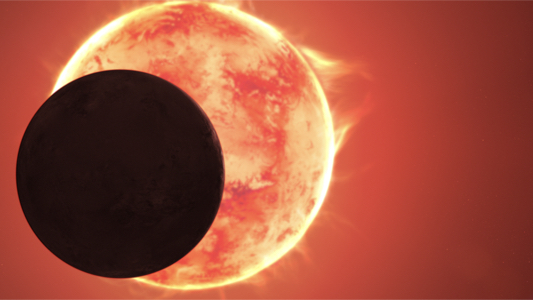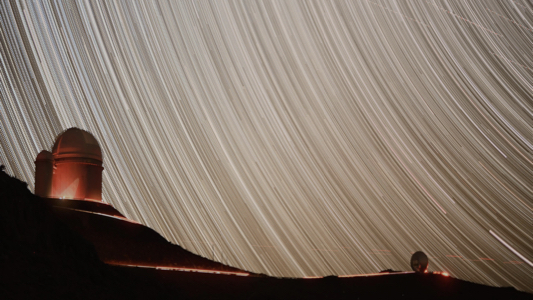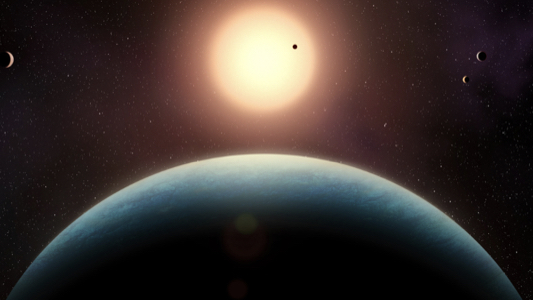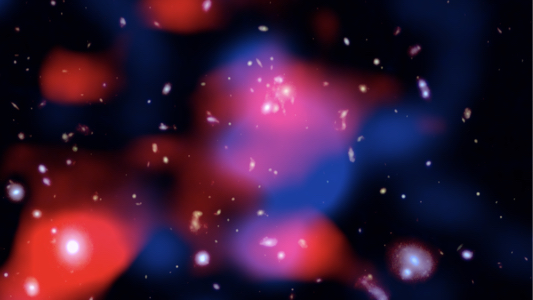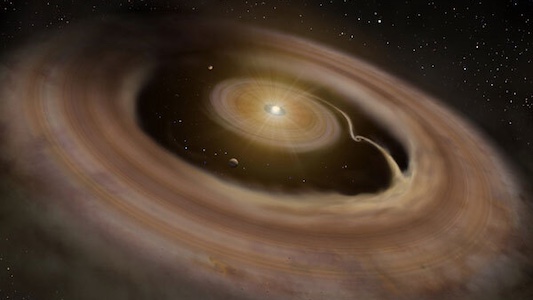-
PhD student Alexandre Champagne-Ruel awarded NASA postdoctoral fellowship
Physics PhD graduate from Université de Montréal, Alexandre Champagne-Ruel, has been awarded a NASA Postdoctoral Program fellowship to continue his research at Arizona State University.
-
Habitable or Not? Astronomers Probe Exoplanet TRAPPIST-1 d Using the Webb Telescope
Could Earth-sized exoplanets be habitable? A new study led by Caroline Piaulet-Ghorayeb, a previous member of the Center of Research in Astrophysics of Quebec, suggests it’s still too soon to say—at least when it comes to TRAPPIST-1 d.
-
The NIRPS instrument: a new eye on the sky in Chile
The Near-InfraRed Planet Searcher (NIRPS) is a new high-resolution spectrograph designed to search for exoplanets, planets orbiting stars other than our Sun, and study their atmospheres.
-
A diverse cast of rocky worlds around a small star revealed by Montreal astronomers
A team led by members of the Center for Research in Astrophysics of Quebec has achieved the most precise study to date of the L 98-59 planetary system.
-
Discovery of ‘mini halo’ points to how the early universe was formed
Astronomers co-led by Professor Julie Hlavacek-Larrondo from the Center for Research in Astrophysics of Quebec detect a gigantic cloud of high-energy particles 10 billions light years away from Earth.
-
JWST Captures Unprecedented Glimpse of Planet Formation in the PDS 70 System
A new study led by University of Victoria Ph.D. candidate Dori Blakely, with key contributions from researchers at the Trottier Institute for Research on Exoplanets (IREx), has used the James Webb Space Telescope (JWST) to capture an unprecedented view of planet formation in the PDS 70 system.
-
A Canadian team joins ESO in milestone agreement for ANDES instrument on the ELT
On June 5th, the European Southern Observatory (ESO) signed an agreement with an international consortium of institutions for the design and construction of ANDES, the ArmazoNes high Dispersion Echelle Spectrograph. The ANDES instrument will be installed on ESO’s Extremely Large Telescope (ELT).
-
Julie Hlavacek-Larrondo : FRQ’s Etoile Montante
The Centre for Research in astrophysics of Quebec (CRAQ) congratulates Julie Hlavacek-Larrondo, a member of the CRAQ, who has been awarded the first Etoile Montante prize by the Fonds de recherche du Québec – Nature et technologies (FRQNT).
-
Landolt space mission: artificial stars for more precise measurements of star brightnesses
The new NASA Landolt space mission, planned for 2029, promises major scientific breakthroughs. The mission, at a cost of $19.5 million, aims to create artificial stars that will enable better calibration of ground-based telescope observations, thus allowing for more precise measurement of star brightnesses.
-
Antoine Bédard receives the 2024 Plaskett Medal
The Canadian Astronomical Society (CASCA) and the Royal Astronomical Society of Canada (RASC) awarded the J.S. Plaskett Medal for 2024 to Antoine Bédard for the best doctoral thesis in astrophysics in Canada.
Activities
CRAQ researchers and their students organize and participate in a multitude of transfer and outreach activities. Some of these activities are reserved to the scientific community such as international conferences, specialized seminars, summer school and various annual meetings of… Read More
Our mission
The mission of the Center for research in astrophysics of Quebec (CRAQ) is to conduct state-of-the-art scientific research in the field of astronomy and astrophysics in Quebec and to promote Quebec astronomy on the world stage. To achieve… Read More
About us
The Centre for Research in Astrophysics of Quebec (CRAQ) brings together all the astrophysicists in Quebec. Nearly 150 people, including some fifty researchers and their students from Université de Montréal, McGill University, Université Laval, Bishop’s University, Cégep de… Read More


